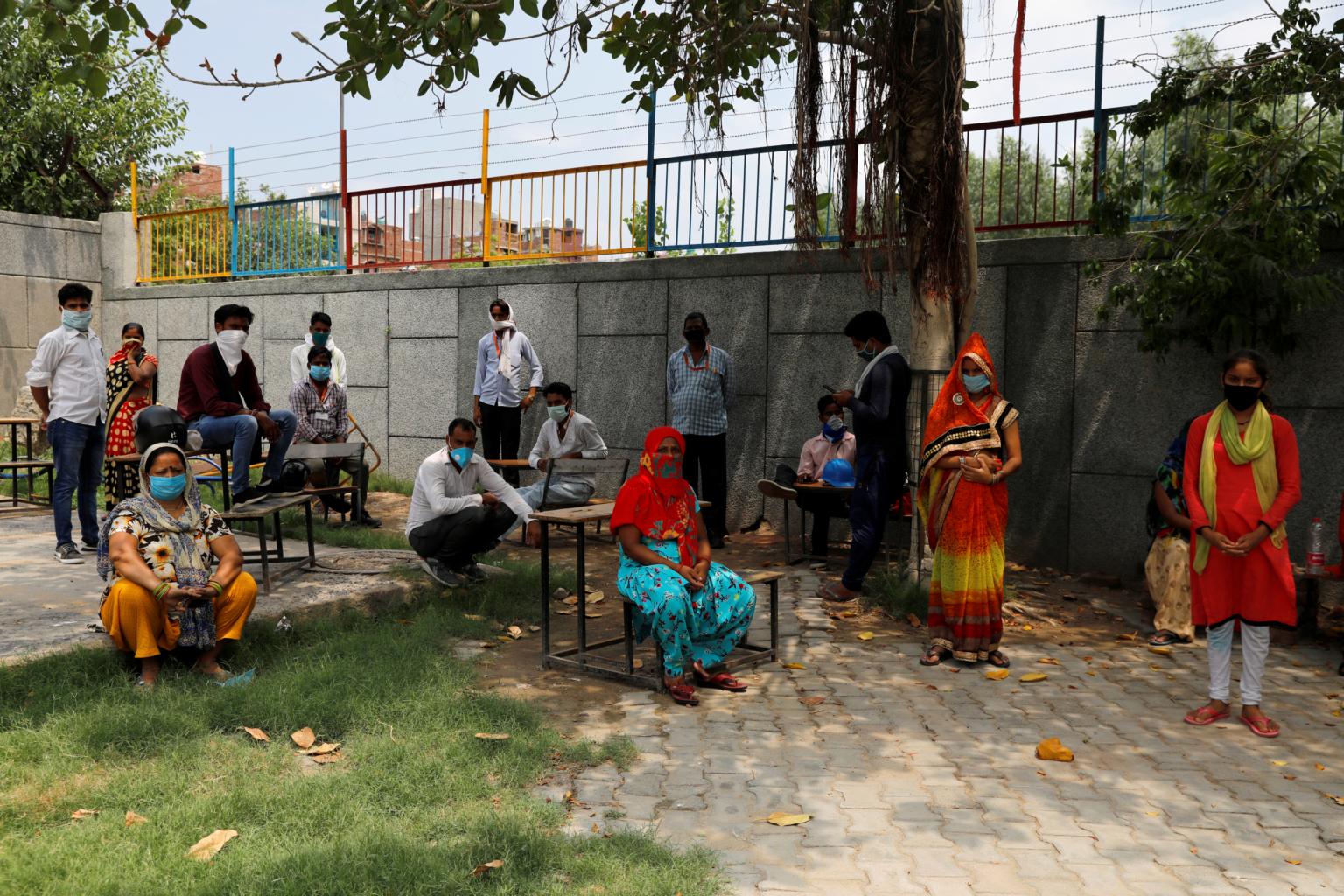Denial of community transmission hurting India's fight against Covid-19
Sign up now: Get ST's newsletters delivered to your inbox

India's limited healthcare resources are being spent trying to trace transmission chains of the virus.
PHOTO: REUTERS
Follow topic:
NEW DELHI - Ever since the first case of Covid-19 was detected in the country on Jan 30, India has steadfastly denied community transmission of coronavirus. The term refers to a person-to-person spread of an infection where the source is difficult to trace.
India's denial implies that it is capable of tracing the source of every coronavirus infection in the country.
It is a claim dismissed by many who argue that the virus has begun spreading among population groups that have little to do with travel or have had no contact with travellers.
This denial of community transmission has worrying implications, they add, because India's limited healthcare resources are being spent trying to trace transmission chains of the virus in areas with community transmission when they should instead be dedicated to isolating and treating those infected.
India currently has the fourth-highest number of Covid-19 cases, trailing the US, Brazil and Russia, with at least 440,215 cases and more than 14,011 deaths. On Sunday (June 21), it registered its biggest single-day spike of 15,372 cases.
But despite a rapidly growing caseload three months since the country's borders were sealed from incoming travellers, the Indian government maintains there is no community transmission.
"India is such a large country and the prevalence is so low in our country. We have found the prevalence is less than 1 per cent in these small districts," Dr Balram Bhargava, the director-general of the Indian Council of Medical Research (ICMR), told a press conference on June 11.
He was speaking to discuss findings of India's first sero-survey on the spread of Covid-19 that found a prevalence rate of 0.73 per cent in 83 districts surveyed. A sero-survey is conducted by testing blood serum drawn from a sample of people in a community to detect antibodies.
"In the urban areas, it may be slightly higher. In the containment areas it may be slightly higher. But... India is not in community transmission," he added.
The extent of Covid-19's spread varies greatly across India. While Kerala has managed relatively well in containing the pandemic with discernible transmission chains, Maharashtra, Delhi, Tamil Nadu and Gujarat have seen a worrying rise in the number of cases, with embedded chains of transmission that remain untraceable.
A study conducted in April by some researchers, including those from ICMR, had even found that 39.2 per cent of the Covid-19 cases analysed in the country did not report any history of contact with a known case or international travel.
Referring to Delhi, where cases have shot past 62,655, Ms K. Sujatha Rao, a former top bureaucrat at the Ministry of Health and Family Welfare, tweeted on Tuesday (June 23) to say not acknowledging community transmission in the city means scarce resources and energies are "being wasted doing half-hearted tracing".
"Once in community (transmission), strategy is to test aggressively, isolate the infected and focus on early treatment. I think GOI is stuck with some ego problem... What about lives?" she added, referring to the government of India.
Delhi's Minister of Health Satyendar Jain, who is recovering from Covid-19, had earlier this month said the source of the disease remains unknown in 50 per cent of the cases in the city but added that it was up to the federal government to declare whether the city had entered the community transmission phase.
Dr T. Jacob John, a well-known Indian virologist, told The Straits Times that denying community transmission had sent out the wrong message at a time when every other person should be considered potentially infected. "If you don't admit it, people will think there is no risk in walking around without a mask or getting together in groups," he said.
Less than 1 per cent of India's population has been tested for Covid-19, which means there is no available data to ascertain the extent of the disease's spread in the rest of the population. "What happens to the 99 per cent is not known. If it is unknown, simply deny it," Dr John said, referring to the government's refusal to acknowledge community transmission. "Denial is a response to what you cannot handle. If you do not know how to manage a problem, you deny the problem."
He added that tracing every chain of transmission in a country of 1.38 billion people is impossible and recommended a strategy that instead empowers doctors across the country with the knowledge to clinically diagnose Covid-19, based on specific criteria for the disease, followed up by confirmation tests when possible.
Public health experts say acknowledging community transmission will shift the focus from containment to mitigation, leading to policy changes such as a more liberal testing regime. Under the current strategy recommended by ICMR, testing is mostly limited to symptomatic people with international travel or exposure to known contacts. It adds that those without any contact but with influenza-like symptoms will be tested if they are from containment zones or hot spots.
Dr T. Sundararaman, the former executive director of the National Health Systems Resource Centre, said testing should have been allowed for symptomatic people without any contact history, which would have enabled a higher detection of cases and, thereby, pre-empting possible clusters.
"At some point, we defined ourselves to say that since there is no community transmission, we will not test anybody without contact and since we tested nobody without contact history, we did not find anybody positive without contacts," he told The Straits Times. "It was a circuitous logic and therefore it prevented a judicious early discovery of surveillance and clusters."

